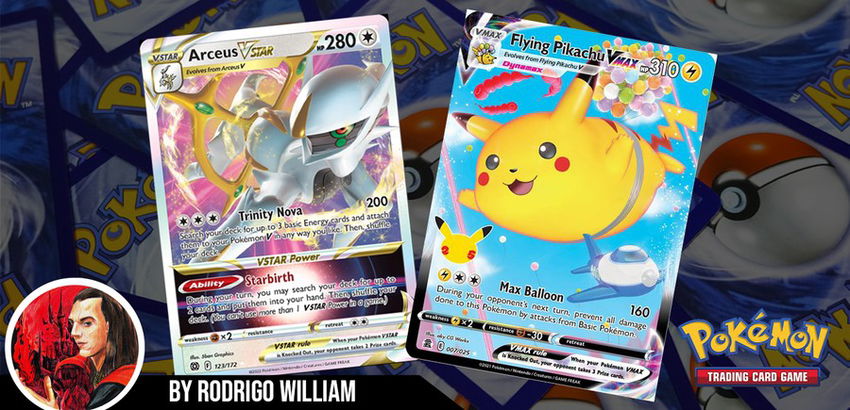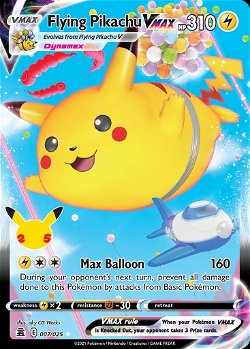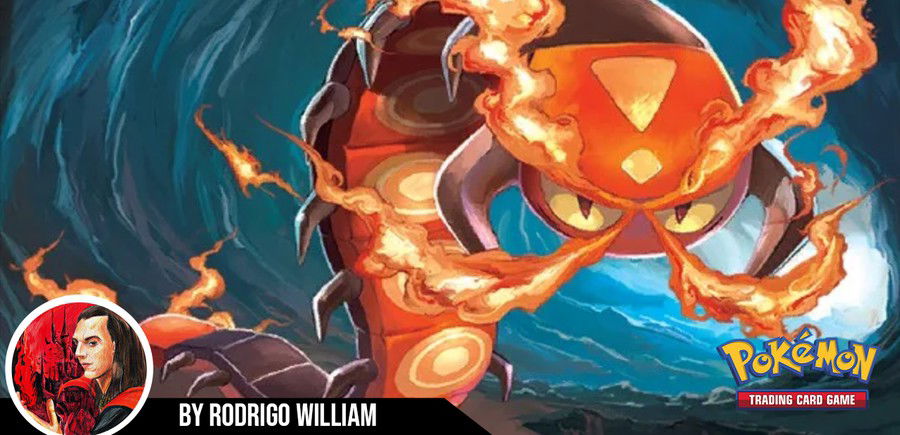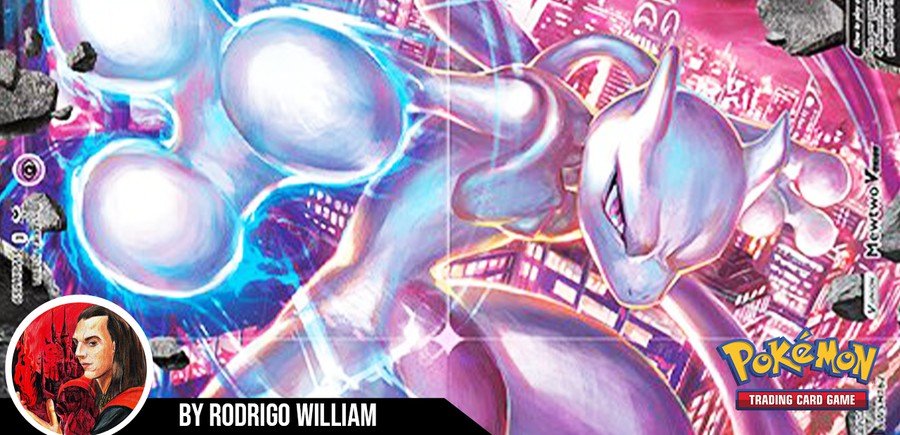Introduction
Hello everybody. I'm Rodrigo, bringing more information about the Pokémon TCG. And today we'll discuss the event champion's deck that also brought surprises, with an unexpected attacking Pokémon for the format: Flying Pikachu VMAX CEL 7, from the Celebration expansion!

That's what you read, the Flying Pikachu VMAX CEL 7, which was considered a "weak" card within the ultra rares released at the time of Celebrations in the second half of last year, gained strength and prominence thanks to Arceus VSTAR BRS 123, which with its Trinity Nova attack, can add 3 energies to your Pokémon-V.
Ad
This made Flying Pikachu VMAX consistent in the game, and with this simple list made by Azull Garcia Griego (or AzulGG, as he is known in the community), he managed to consecrate himself champion, proving that any card can have game possibilities: just know how and when to use it.
Arceus VStar Decklist + Flying Pikachu VMax
Deck Analysis
The deck consists of accelerating the heaviest attackers, with priority on Flying Pikachu VMAX CEL 7, which has the attack Max Balloon (E)(C)(C), dealing 160 damage and the next turn, prevents attacks from the opponent's Basic Pokémon. It's something very useful against decks like Miltank ASR 126, which is on the rise lately, thanks to its Miracle Body ability that prevents it from taking damage from these types of Pokémon-V (both basic V and VMax). , VStar, VUnion, etc.).

To speed up Flying Pikachu VMAX CEL 7, we have an essential card for 80% of decks in the format, the Arceus set — and of course, with due emphasis to Arceus VSTAR BRS 123, which with its attack Trinity Nova (C)(C)(C), can power up 3 energies to your Pokémon-V any way you want. The purpose of the deck is elementary, but let's break it down for the walkthrough:

1) The priority is to play Arceus V BRS 122 to evolve into Arceus VSTAR BRS 123, to receive the benefits. Even though the Arceus V BRS 122 with Double Turbo Energy BRS 151 can fulfill the requirement of the Trinity Charge (C)(C) attack, it does no damage, and just attaches the energies to your Pokémon-V the way you want, but once in the "VStar" form, then with Trinity Nova, for another colorless energy, it still does 200 damage and makes this energy distribution, being more aggressive.
If there's a lack of resources in the game, you can use VStar: Starbirth, where you can search for two cards you want from the deck and put them in your hand (remembering that attacks and VStar abilities, whatever they are, can only be executed once throughout the game — so think wisely about when to use them).

2) After having played Arceus, prioritize Pokémon with draw power to always leave your hand with options. This is the case with Bibarel BRS 121, which with its Industrious Incisors ability, can draw cards until you have 5 cards in your hand, and it can be used for each Bibarel that is in play — that is, if it has two, and assuming that in the first draw of that first Bibarel, you searched for cards that you played in the turn and spent your hand, you can use the second Bibarel to make the effect of the ability of that second one and be able to have one more session of card draws, which is very useful for filtering your deck.
3) Having already played Arceus-V before, the ideal is that in that same turn, at least, you can also play Flying Pikachu V CEL 6 to your bench to guarantee the evolution of Arceus-VStar in the next turn and the deck's main attacker, the Flying Pikachu VMAX CEL 7, to use its Max Balloon (E)(C)(C) attack, which deals 160 damage and on the next turn, prevents attacks from opponent's basic Pokémon.
Ad

4) If there is a game in the game that has to deal with the fearsome Mew VMAX FST 114, the Crobat VMAX SHF 45 is the card that responds against it for the simple fact of being of Mew's weakness , that is, hitting for double damage against it!
Its Max Cutter (D)(D)(C) attack deals 180 damage, but applying double weakness becomes 360, knocking out Mew VMAX FST 114 with ease. And if you need to take advantage of your Crobat's escape situation and preserve it in the game or promote a new attacker, you can use the effect of its other attack, Stealth Poison, which deals 70 damage and leaves the active opposing Pokémon poisoned, in addition to replacing Crobat as the active Pokémon for the bench, saving in a way a Switch SSH 183, taking advantage of this attack effect, which is quite useful.
5) Pumpkaboo EVS 76 only enters here to remove a stadium that can interfere with your game, being more specific, the Path to the Peak CRE 148 to be able to use the Starbirth of your Arceus VStar in some moment of the game that you want to use, thanks to its Pumpkin Pit ability, where if it is put from your hand to your bench, you can apply this ability, discarding the stadium that is in play.
Trainer Cards
Now going to the Trainer cards part, let's break down some that are most important in the deck and their functions being applied in specific situations:
- Professor's Research (Professor Oak) CEL 23 needs no introduction: discard your hand and draw 7 cards, being one of the strongest in terms of draw at any block, already said several times here in our deck articles guides, which is almost a law to have them in its structural composition and is always welcome.
- The card Marnie SSH 169 is that control to take the resource out of the opponent's hand if they have too many cards in possession. Its effect is to shuffle your hands and the opponent's, but the opponent's cards go to the bottom of the deck, and they draw only 4 cards, and you just shuffle everything you have back there, drawing 5 new cards.

- Roxanne ASR 150 is for an extreme situation where your opponent is about to win the game by only 3 prize cards onwards, where you can apply this effect. Almost like a "Marnie", this card is more aggressive, as you shuffle your opponent's hand leaving them with only 2 cards in hand, while you have 6 cards.
- Cheren's Care BRS 134 basically picks a colorless type Pokémon that has some damage counter, and you can pick up that Pokémon to your hand and all cards attached to it as well. It can get rid of situations where your Arceus-VStar has some critical damage that costs its knockout, and two of the opponent's prize cards, taking them out of the game.
For those who are old, this little combo slowly recalls what they did in the Sun/Moon block, in the launch of Zoroark-GX SLG 53 with Acerola BUS 112, which did almost the same process to “preserve” Zoroark for being a stage 1 Pokémon, for hitting with only two energies and a lot of damage, which was always versatile and agile for its recovery — and it applies for Arceus in the current format.
Ad
- Boss's Orders RCL 154 is pretty much essential in any deck, just like "Professor's Research". Having already mentioned its importance in deck creation and analysis, it is what pulls a Pokémon from the opponent's bench to the active position, closing specific knockouts.

- The card Phoebe BST 130 is basically your safeguard against negative effects against your Pokémon-VMax.
“But what do you mean, Rodrigo?”
Simple: The card, when applied that turn, nullifies any effect that negates the effect of your Pokémon-VMax. For example, let's say your opponent is a Miltank ASR 126 that prevents damage from Pokémon-V in general (including VMax) and if you play Phoebe that turn, your Flying Pikachu VMAX CEL 7 can attack Miltank, bypassing the effect of its ability, which would automatically prevent the attack.

- Raihan EVS 152 can only be played when one of your Pokémon has previously been Knocked Out, and if so, you can energize an Energy from your discard pile on a Pokémon you choose and still take any Trainer card from the deck and put in your hand. This speeds up any heavy attacker in your game, be it Flying Pikachu VMAX CEL 7 itself as well as Crobat VMAX SHF 45 or even some Arceus VSTAR BRS 123 that can deal 200 damage (being the highest base damage of all attackers in the deck).
- The Stadium card Path to the Peak CRE 148 is precisely to disrupt the opponent's decks that use a lot of Pokémon-V in general or Radiant Pokémon that have abilities, since this stadium has the function of nullifying abilities of any Pokémon that have a Rule Box. The ideal to use this stadium would be after you use Arceus's VStar ability, Starbirth, so that you don't have obstacles to self-sabotage and after using it, you can play this card against your opponents to hinder them.
- Pal Pad SSH 172 is the recycling of Trainer cards of the Supporter type, that is, it is an Item card that can recycle essential cards like Phoebe BST 130, Cheren's Care BRS 134 and Boss's Orders RCL 154.
Special Energies

- Double Turbo Energy BRS 151 offers a 20 damage reduction to the Pokémon it has, and this energy is attached to, making the Arceus of your game last a little longer, being able to save from some situations that would lead to a "One Hit Kill".
- Capture Energy RCL 171 is a card that seeks to attach itself to one of your Pokémon, the energy has the effect of seeking a basic Pokémon from your deck and putting it on your Bench, accelerating this assembly on the reserve Bench.
Format Archetypes
Advantages
As Arceus's power-up versatility for Pikachu and Crobat, it becomes dynamic, practical for everyone using a maximum of 3 energies, and still counting Pikachu as a barrier against basic Pokémon such as Miltank ASR 126, Regigigas ASR 130, or Suicune V EVS 31 for example.
Ad
Also, Crobat-VMax has an excellent response against Mew VMAX FST 114 decks as it is a dark type, applying the weakness over the psychic archetype.
Disadvantages
The deck has a good consistency against many types, it can even try to face cards like Duraludon VMAX EVS 123 with its ability that prevents it from taking damage from Pokémon that have special energies attached to them, since the deck has 4 copies of Double Turbo Energy BRS 151, but we have Path to the Peak CRE 148 that can nullify Duraludon's passive.
I believe that the deck's biggest weakness is in a fight against the fighter-type archetype, since Arceus and Crobat share this same weakness, making combats where they can easily close this damage because they double the value on their own of weakness.
Conclusions
It's an objective deck, simple and didactic to use, in addition to being dynamic and practical in its mechanics, being very nice for anyone to play it, if you study a little about it in a few minutes.
It is worth the attempt to assemble and use it, which will have a good experience for both beginners and veterans.










— Commenti0
Diventa il primo a commentare